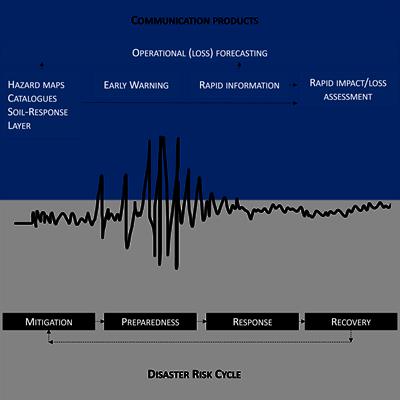irina dallo
Swiss Seismological Service, ETH Zurich
Zurich, Switzerland
4,673
Total downloads
23k
Total views and downloads
Submission closed
Research Topic Summary
This Research Topic foregrounds the need for adaptive, timely, and innovative approaches in conveying seismic hazard and risk across diverse communities. Earthquakes, as dynamic phenomena, require risk communication strategies that evolve alongside changing scientific knowledge and societal expectations.
The four articles in this collection collectively underscore the importance of integrating real-time data and interactive technologies—such as educational games—to improve seismic awareness, preparedness, and response. Central themes include enhancing public engagement through innovative educational methods, countering misinformation, and tailoring messages to various audiences’ needs and vulnerabilities.
The works featured in this Research Topic demonstrate that effective communication is essential for empowering communities, fostering resilience, and ultimately reducing disaster risk in the face of continually evolving earthquake hazards. By leveraging interdisciplinary strategies and emerging tools, they contribute significantly to the evolution of dynamic earthquake risk communication.
Research Topic Description
Earthquakes are dynamic processes, thus seismic hazard and risk vary over time. In order to reduce disaster risk and increase societies’ resilience to earthquakes, effective communication throughout the earthquake cycle is required to enable societal stakeholders to make informed (protective) decisions. Various communication products and strategies have been developed that, taken together, contribute to a dynamic communication framework providing relevant, readily available information along the earthquake cycle. Such products and strategies include long-term forecasts, short-term forecasts, earthquake early warning systems, rapid earthquake information, and rapid impact assessments, among others.
While of crucial importance, assessing the technical value of the aforementioned products and strategies is not, by itself, sufficient. What is equally important is the involvement of societal stakeholders in their design, to ensure a successful translation from science to practice, and to develop effective communication products and strategies that decrease societies’ earthquake risk.
Currently, the latter issue is the object of several studies worldwide. The overarching aim of this Research Topic is to showcase the latest work in the field and synthesize insights to provide an overview of best practices. More specifically, our aim is to:
• collect best practices on how to best communicate dynamic earthquake hazard and risk information to societies
• gain insights into how societal stakeholders can best be involved in the design process, considering issues such as diversity, equality, and inclusion
• learn from regional case studies and derive guidelines for countries still in the initial design processes;
• initiate an international discussion on how to combine earthquake communication products and strategies to effectively increase societies‘ resilience
• expand the network of scientists working on earthquake hazard and risk communication around the world
• and emphasize the need of transdisciplinary studies, involving scientists from different disciplines and relevant societal stakeholders.
Researchers, practitioners, journalists, educators, and policy makers dealing with earthquake hazard and risk communication at any stage of the dynamic earthquake cycle are encouraged to contribute to the collection. Studies can have an international or regional/national scope and cover communication products and strategies independently or address any combination of them. Studies can also address the design process and implementation phase of products and strategies as well as any relevant outreach activities. All studies must make the link to the societal involvement in the design, implementation, and/or operation of products and strategies explicit.

Keywords: communication, earthquake risk, earthquake hazard, public, societal stakeholders, earthquake forecasting, earthquake early warning, rapid impact assessment, rapid earthquake information
Important note: All contributions to this Research Topic must be within the scope of the section and journal to which they are submitted, as defined in their mission statements. Frontiers reserves the right to guide an out-of-scope manuscript to a more suitable section or journal at any stage of peer review.
Share on WeChat
Scan with WeChat to share this article
